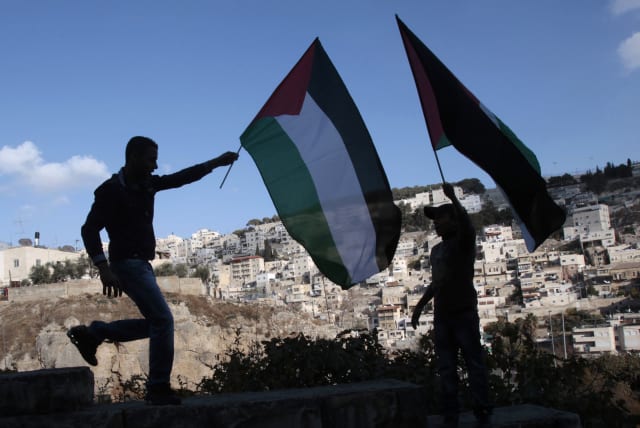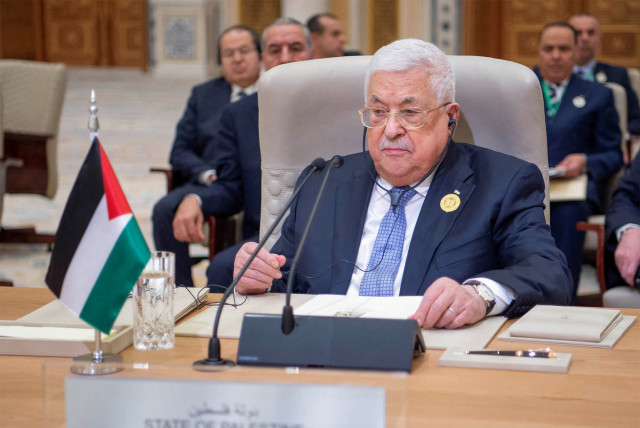Palestinians renew call to boycott Jerusalem elections

The majority of the Arab residents have been boycotting the municipal elections since 1968, claiming that participation would be interpreted as recognition of Israel’s annexation of east Jerusalem.
The controversy surrounding the participation of Arab residents of Jerusalem in the municipal elections, scheduled to take place later this year, has resurfaced, with Palestinian activists renewing the call to boycott the vote.
The majority of the Arab residents have boycotted the municipal elections since 1968, claiming that participation would be interpreted as recognition of Israel’s annexation of east Jerusalem. Only a few thousand voters, mostly municipal employees and Arab Israelis living in the city, have cast their ballots in previous elections.
In recent years, however, a number of Arabs from east Jerusalem defied the boycott by presenting their candidacy for the elections, citing the need to improve services and infrastructure in the Arab neighborhoods and villages of the city.
Citizenship status and rights granted
The vast majority of the Arabs in east Jerusalem hold Israeli-issued blue ID cards due to their status as permanent residents of the entire city that Israel deems to be Israeli territory. This status grants them the same rights as Israeli citizens, but with one exception: voting in the Knesset elections. As such, the Arab residents of the city are entitled to vote and run in the municipal elections, but most have preferred to heed calls from Palestinian factions and political activists to boycott the electoral process.
Earlier this week, a group named The National Popular Conference of Jerusalem, issued a new call for boycotting elections in the city. The group, dominated by members of the Palestinian ruling faction headed by Palestinian Authority President Mahmoud Abbas, warned that a vote by Arab residents in the upcoming elections would be considered a “clear breach of the national consensus.”
Similar calls were issued by a number of Palestinian factions and officials in the past few weeks.
The group described the Jerusalem Municipality as “the primary arm of the occupation to carry out settler and Judaization projects in the city” and imposing severe restrictions on the Arab residents to force them to leave.”
Denial of Arabs' basic rights
The warning came amid increased calls by some Arab residents to end the boycott of the municipal elections under the pretext that it is counterproductive and denies basic rights to the city’s Arab residents. The group described the calls as “suspicious” and said they aim to show that Israel is a democracy. It warned that anyone who complies with these calls would be acting against the official Palestinian policy that considers Jerusalem as “the eternal capital of the future Palestinian state.”
Recently, Waleed Abu Tayeh, an Arab Israeli citizen from Nazareth who has been living in east Jerusalem for more than three decades, announced his intention to run in the municipal elections. Abu Tayeh, 68, told The Jerusalem Post last January that he is in the process of forming a list to contest the elections. “My decision to participate in the elections does not mean that I recognize the Israeli occupation of Jerusalem,” he said. “I want to serve the Arab residents of the city, who are deprived of many basic municipal services and who suffer from discrimination in many fields, especially the construction of homes and a lack of investment.”
In 2018, Ramadan Dabash, a businessman from the village of Sur Baher in east Jerusalem, led a party called “Jerusalem, My Town.” The party garnered only some 3,000 votes but that was not even enough to gain it a seat on the municipal council.
A Palestinian official in Ramallah said on Thursday that there was no change in the Palestinian leadership’s position towards participation in the Jerusalem elections. “Our position remains clear and firm,” the official told The Jerusalem Post. “We are strongly opposed to attempts to push the Palestinians to participate in the elections under various pretexts. East Jerusalem is an occupied city and the Israeli municipality does not represent the Palestinians in the city.”
Jerusalem Post Store
`; document.getElementById("linkPremium").innerHTML = cont; var divWithLink = document.getElementById("premium-link"); if (divWithLink !== null && divWithLink !== 'undefined') { divWithLink.style.border = "solid 1px #cb0f3e"; divWithLink.style.textAlign = "center"; divWithLink.style.marginBottom = "15px"; divWithLink.style.marginTop = "15px"; divWithLink.style.width = "100%"; divWithLink.style.backgroundColor = "#122952"; divWithLink.style.color = "#ffffff"; divWithLink.style.lineHeight = "1.5"; } } (function (v, i) { });

